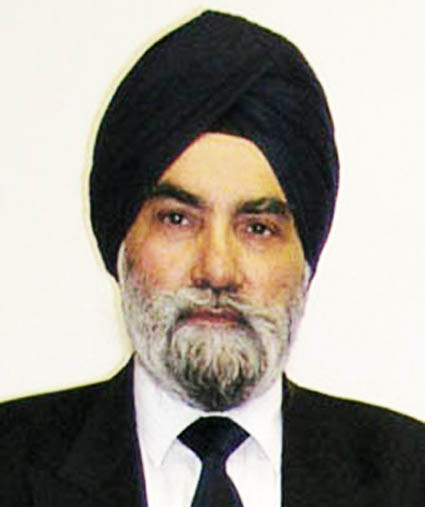Bloom Review: A Missed Opportunity to Engage British Sikhs

The aim of the Bloom Review was to look into how government engages with faith, people of faith and places of worship. The Review has caused much concern in British Sikh circles.
Colin Bloom, former head of the Conservative Christian Fellowship, tells the government that there are true believers, non-believers and make-believers. Make-believers are generally the cause of most of the problems that government encounters in the faith space. Bloom certifies that the true-believers and non-believers are generally sincere, peaceful and decent and that the government should work with them and exclude make-believers. So, in seems, all the government has to do is to identify the make-believers and not deal with them! Such woolly and undemocratic thinking is the general flavour of the Review.
There are too many contradictions. At places, Bloom states the correct democratic principle but then goes on to give opposite advice! Bloom rightly acknowledges that it would be difficult to proscribe specific groups unless they meet the clear threshold for terrorist behaviour. But then he makes a cryptic suggestion that there is a significant policy gap that must be plugged. This cannot be safe guidance to public servants in a democracy!
It is most remarkable that Colin Bloom did not refer to a well-researched report by Dr Jasjit Singh of Leads University, The Idea, Context, Framing, And Realities Of &lsquoSikh Radicalisation In Britain, (November 2017). Unlike the Bloom Review, this CREST report was based on comprehensive evidence and not personal opinions. It concluded that Britain had nothing to fear from Sikh activism.
Regarding the complex self-determination issue, Bloom could have also benefited from reading some good publications which quote legal sources, for example: Self-Determination as Human Right and its applicability to the Sikhs and State Policy and Legislation Affecting Sikhs. The essay by, Sirdar Kapur Singh, The Golden Temple: Its Theo-Political Status gives a good insight into the collective Sikh psyche regarding the right to self-determination.
It is unlikely that Bloom has read a good English interpretation of the Sikh Ardaas (supplication) which summarises Sikh history and Panthic theo-political Qaumi aspirations while working towards universal well-being (Sarbatt da Bhalaa). It is unlikely that he, and some he quoted, understand Sikh ideology, history and sacrifices behind Sikhi word-concepts and expressions like Panth di Chardhi Kalaa, Panth Ki Jeet, Raj Karega Khalsa, Degh Tegh Fateh and even the Sikh salutation, Waheguru Ji Ka Khalsa Waheguru Ji Ki Fateh. Such expressions have to do with the inalienable Sikh right to individual and collective freedom of soul and body and the right to self-determination which the collective Khalsa Panth is always capable of exercising. No Sikh claiming to speak for the Sikhs can give away and no totalitarian regime can take away that right. The right of all distinct people to self-determination is enshrined in international law and UN instruments.
The Mandla Case 1983 judgement by the Law Lords has not even been mentioned in this Review. It would have guided Bloom regarding the Sikh legal right to Ethnic classification in the UK. Most remarkable is the failure to mention 1984 Genocide as a Sikh grievance relevant in the self-determination context.
Bloom shows complete misunderstanding about the Sikh religious ceremony of Anand-Karaj.
The Review has too many flaws, is not independent and should not be used to guide future Government policy regarding Sikh faith engagement.
Gurmukh Singh OBE
Principal Civil Servant Retd (UK)